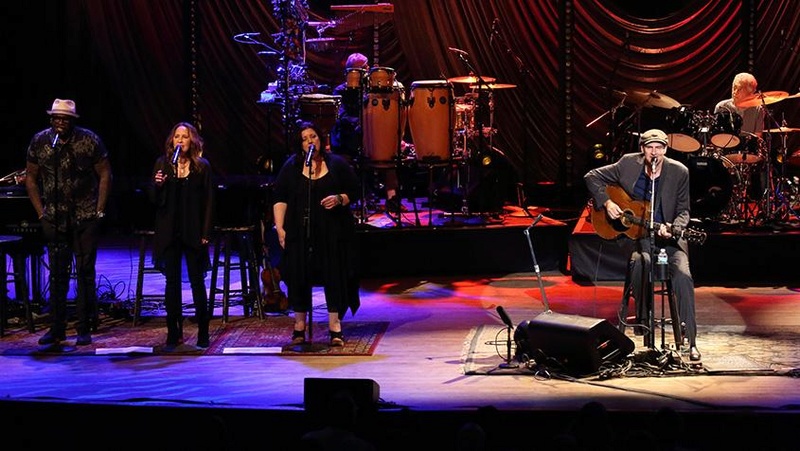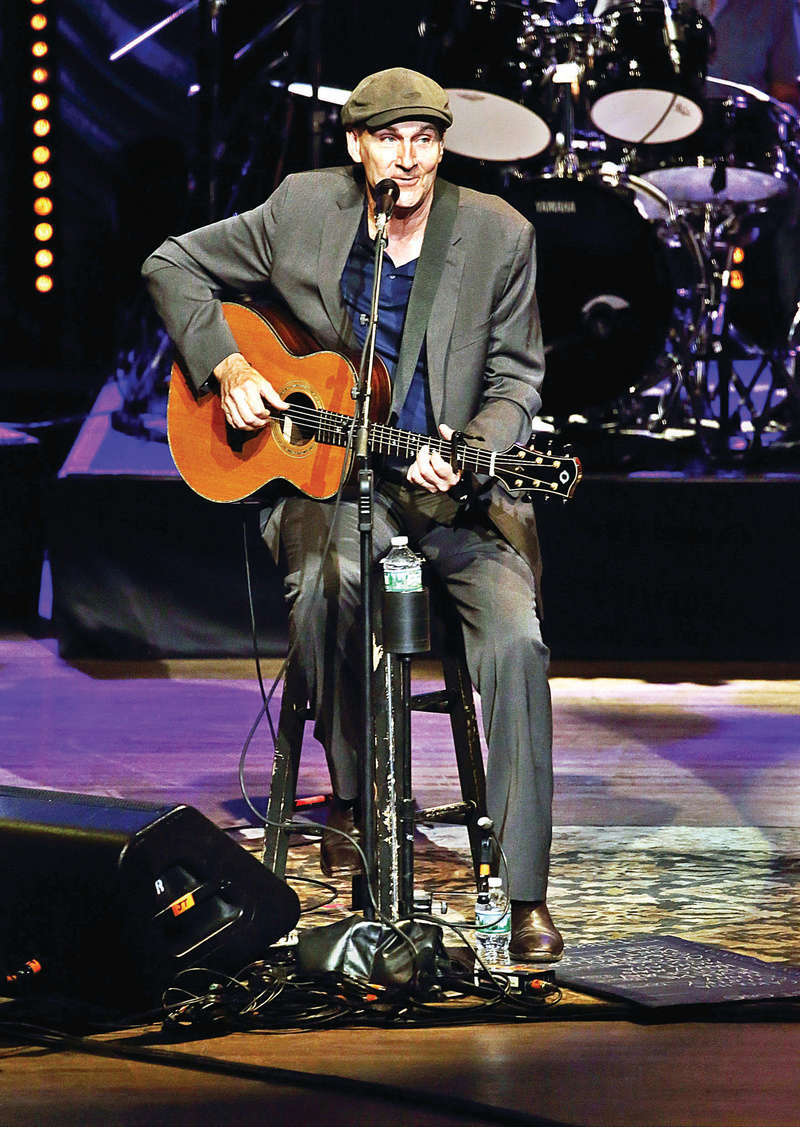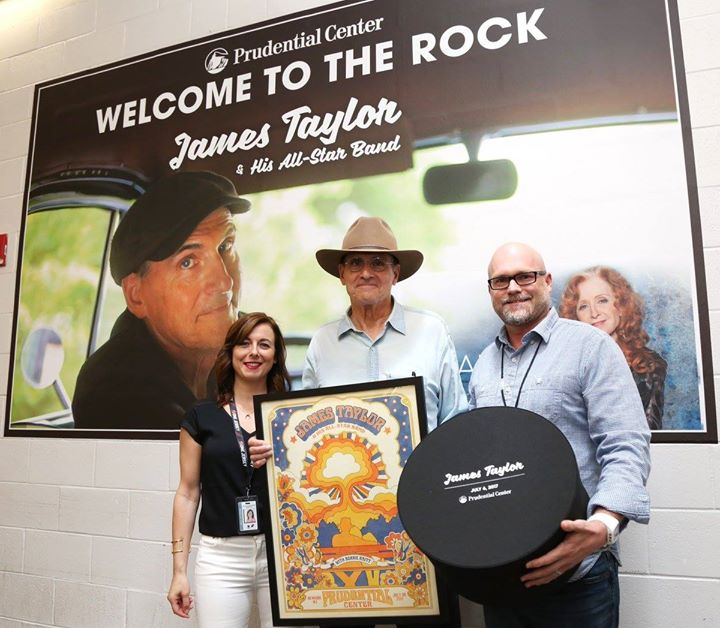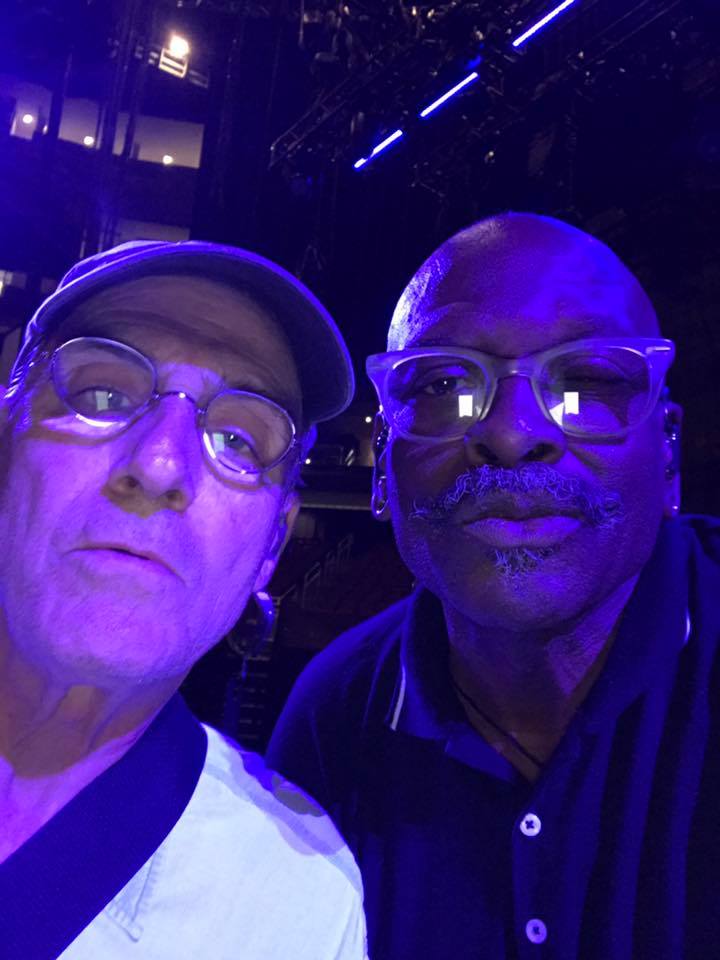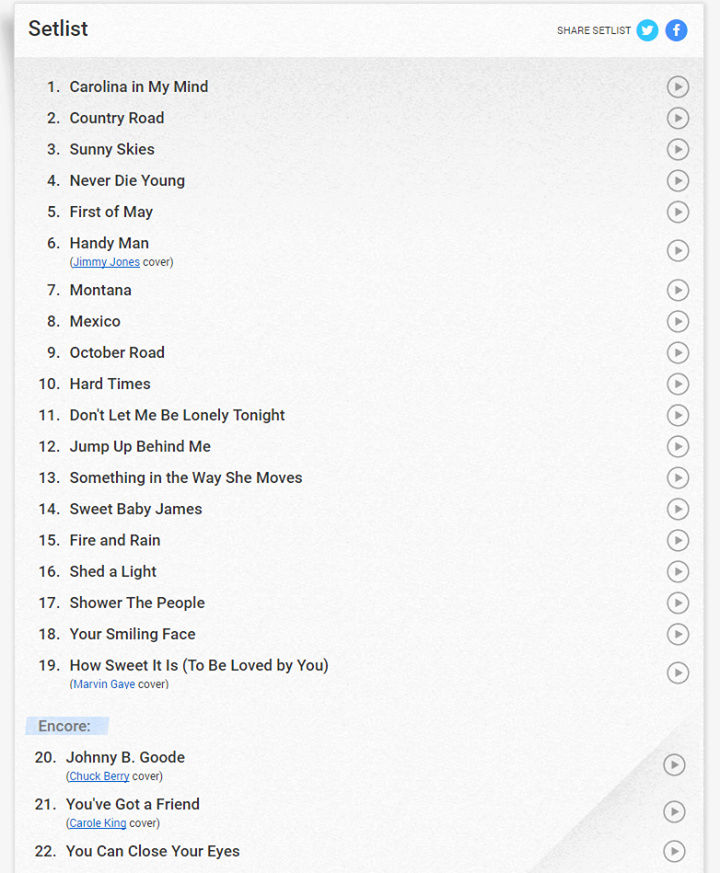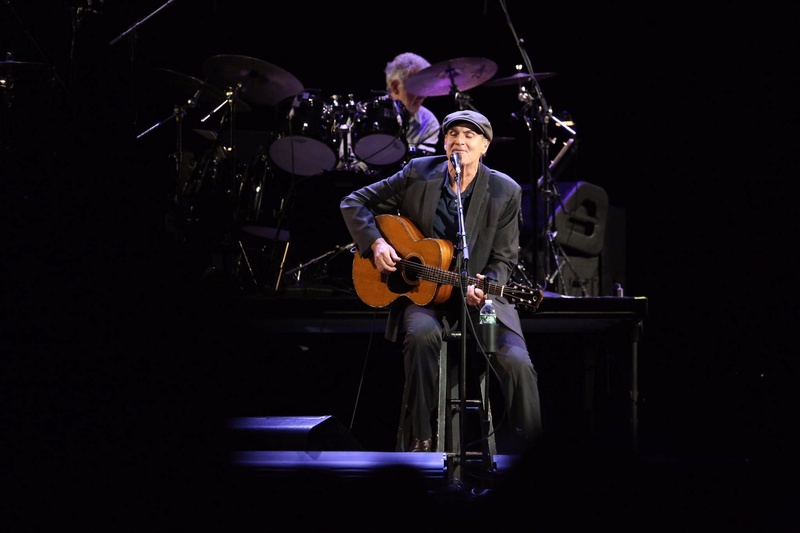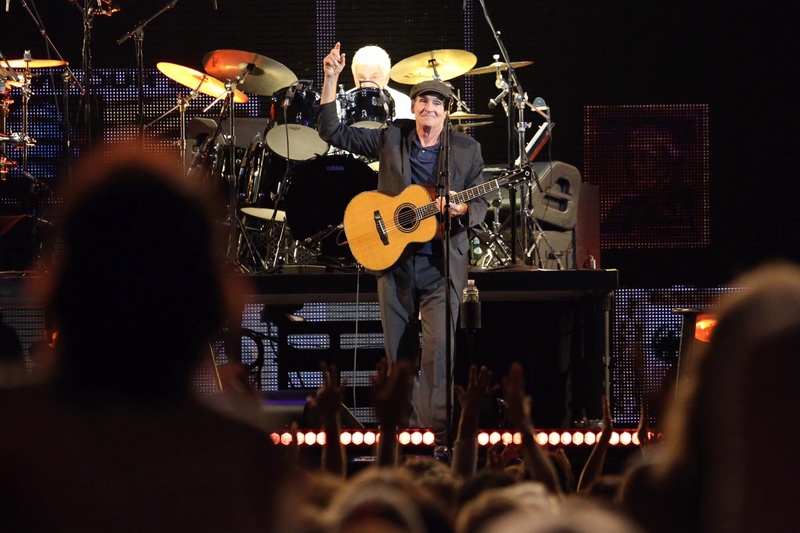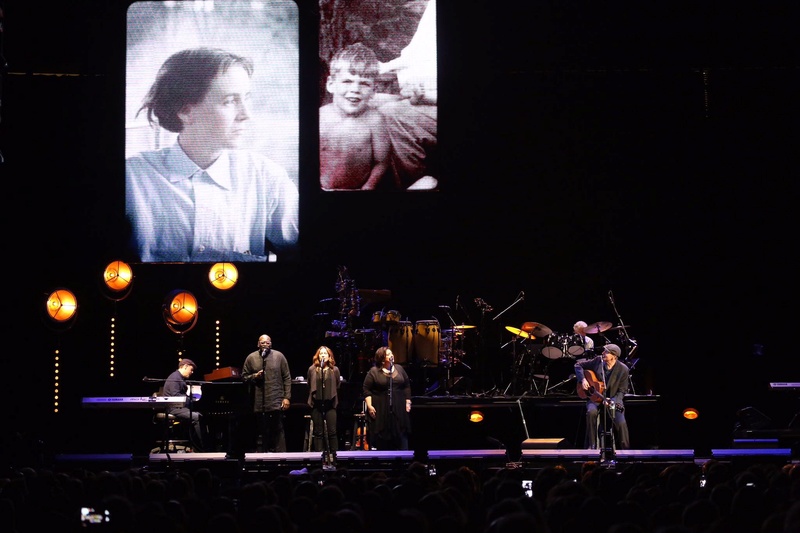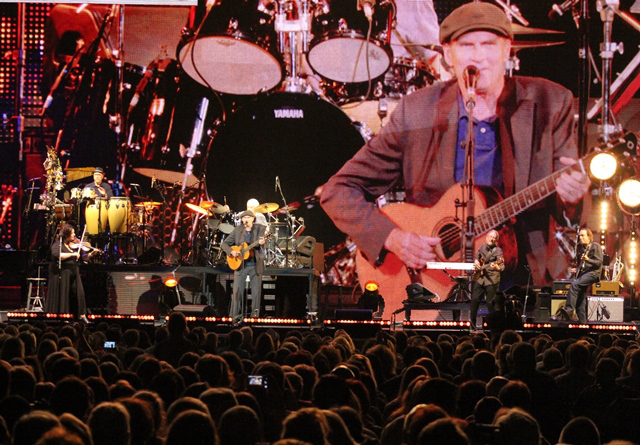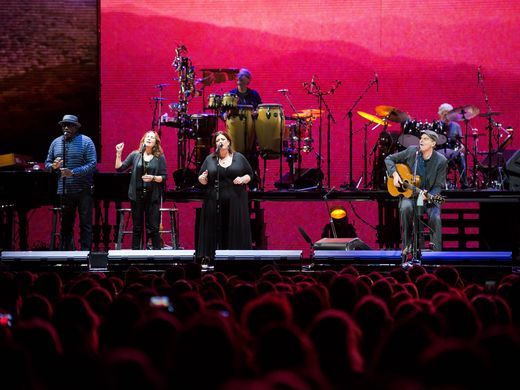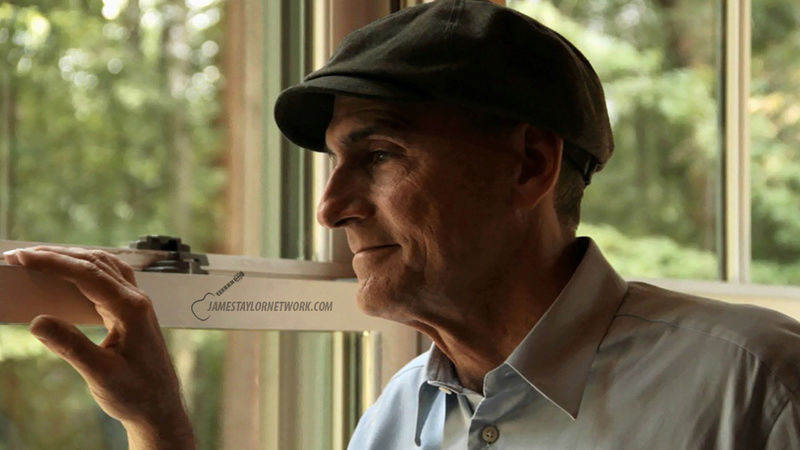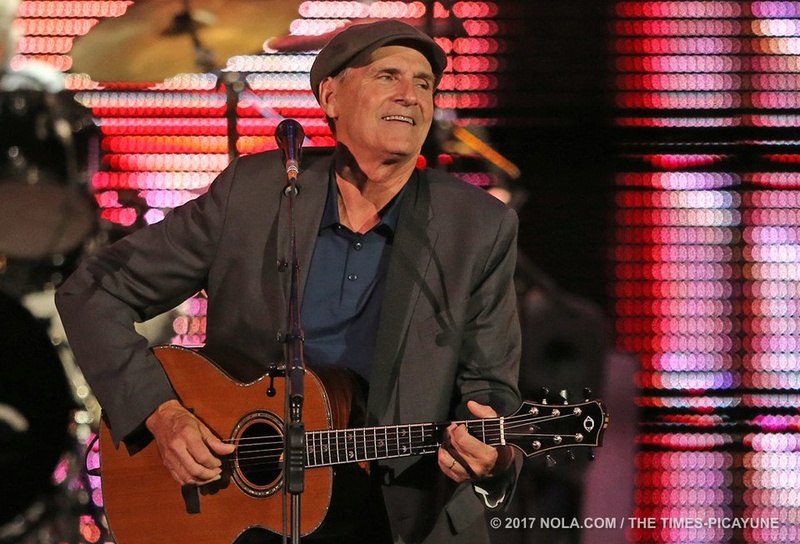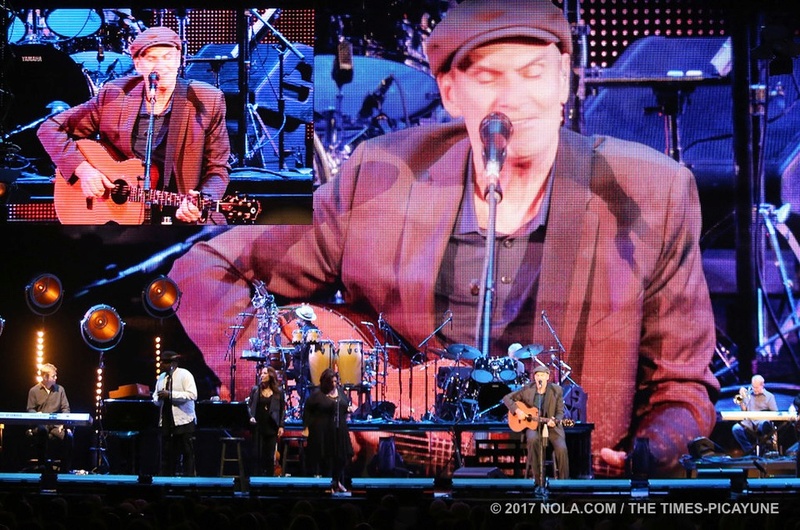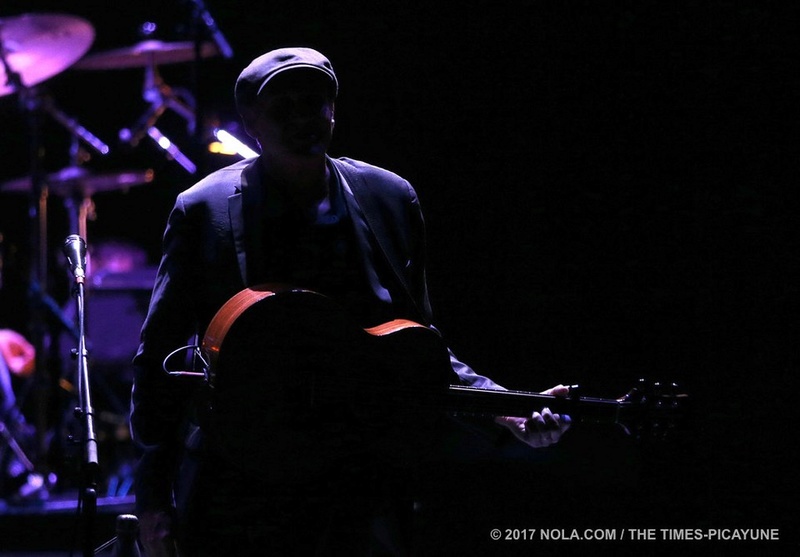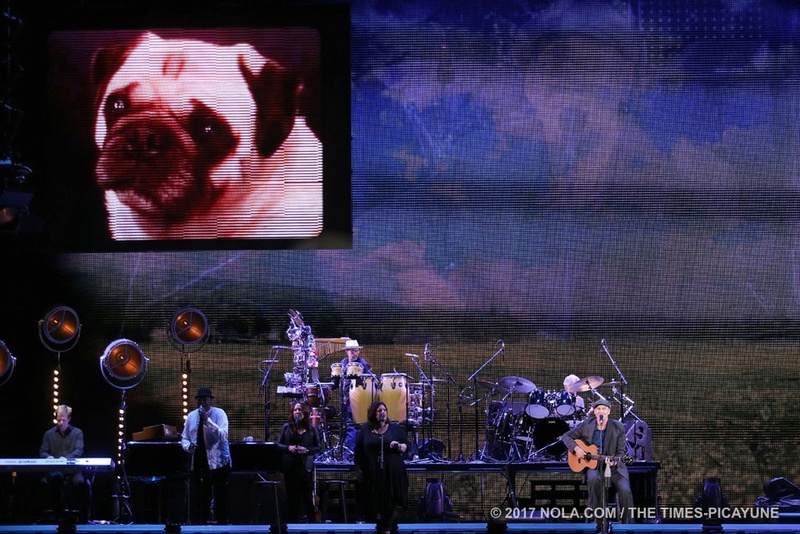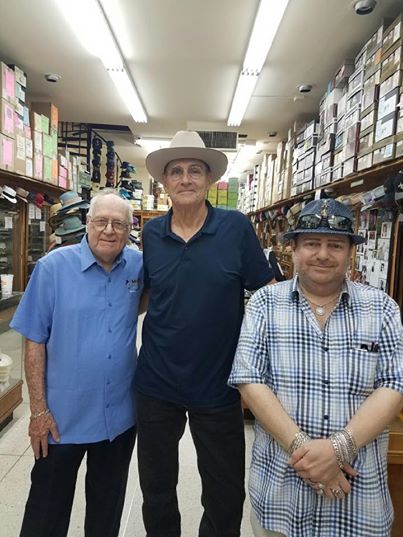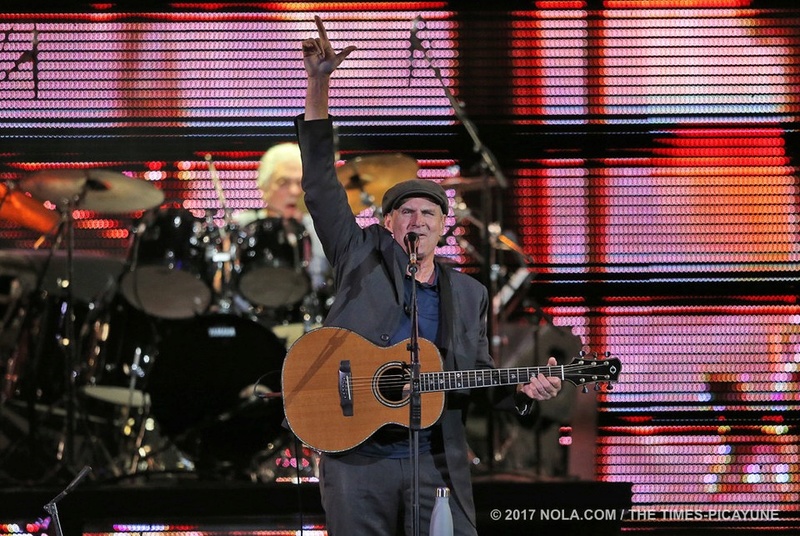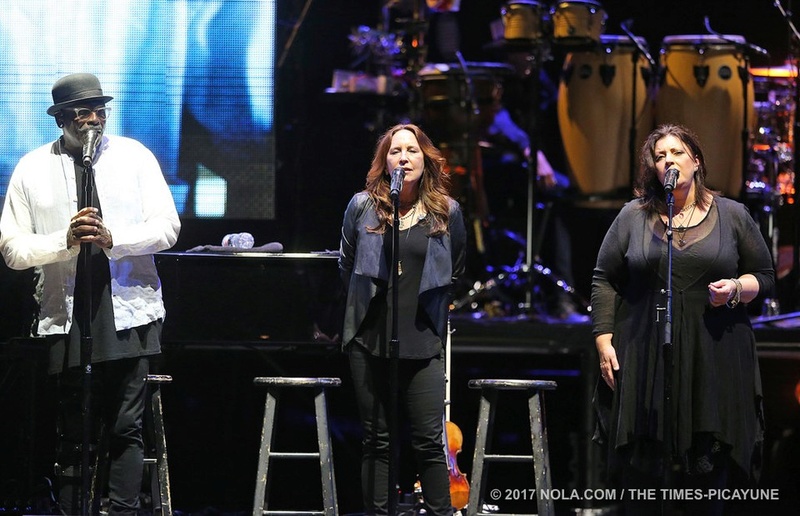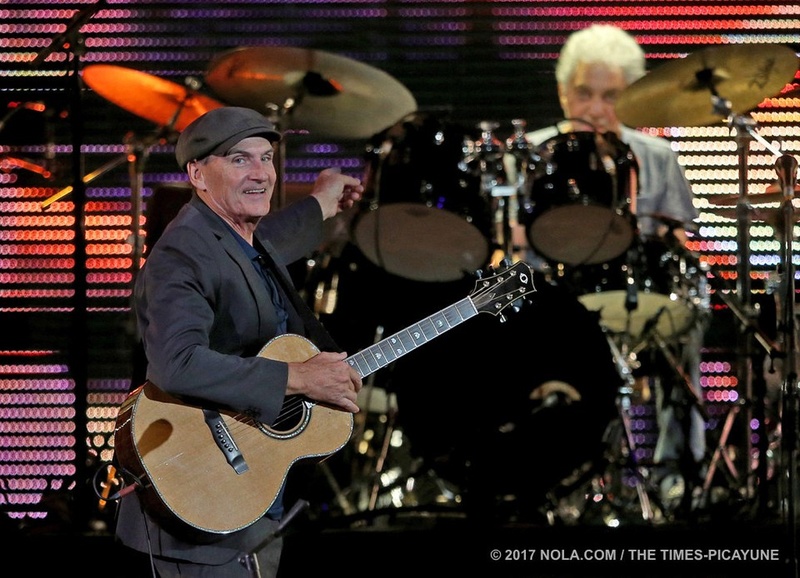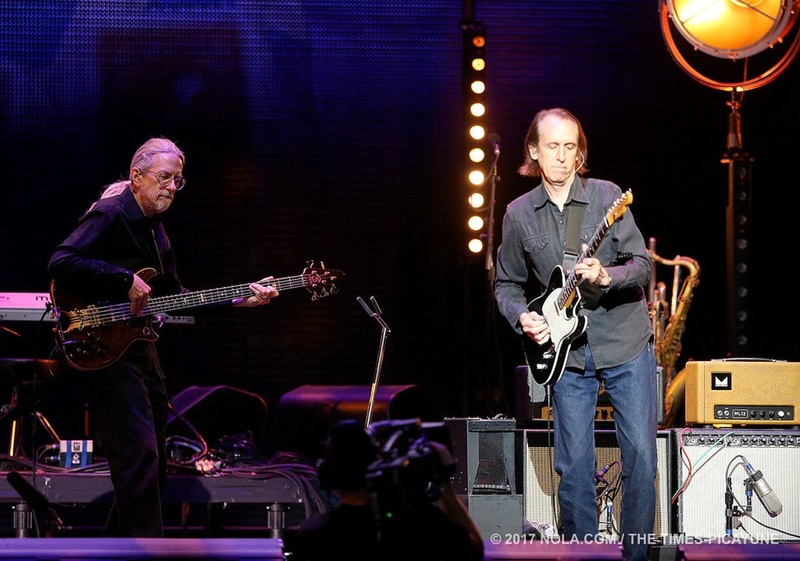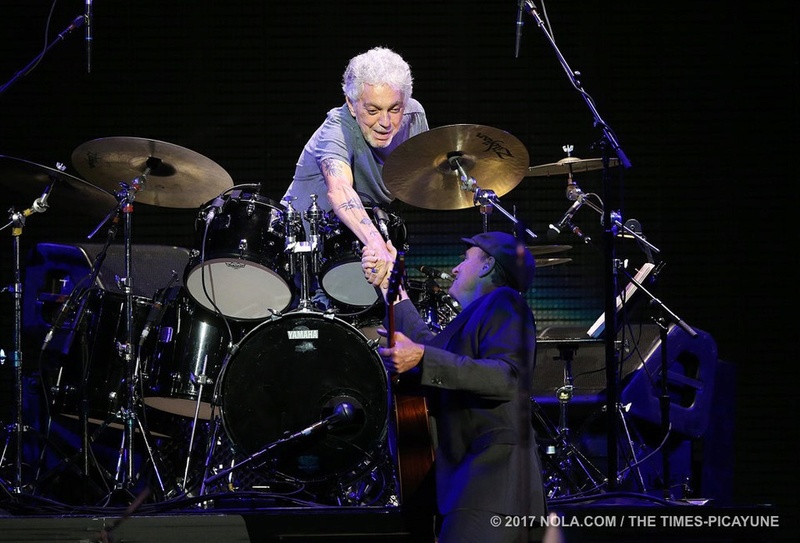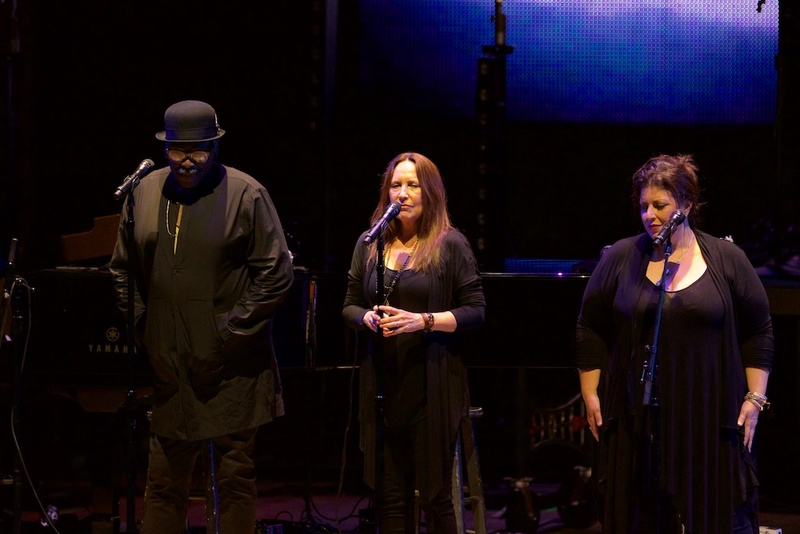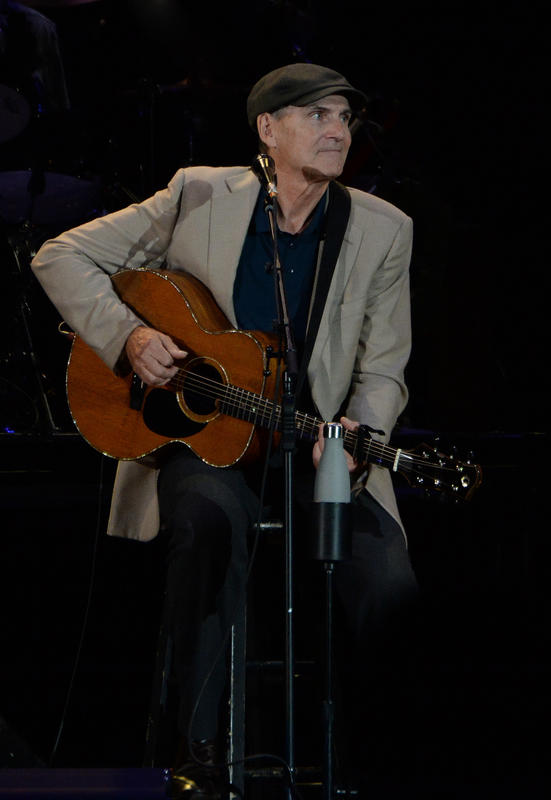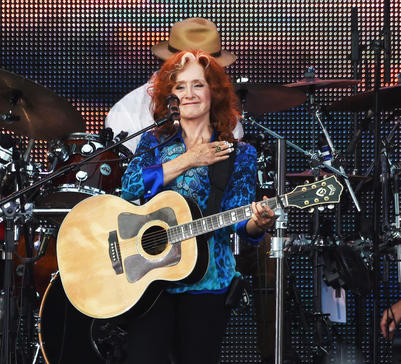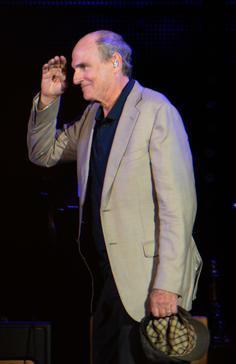JAMES TAYLOR REFLECTS ON A LIFE, AND A CAREER, THAT IS STILL MOVING FAST
By Andrew Dansby - July 28, 2017
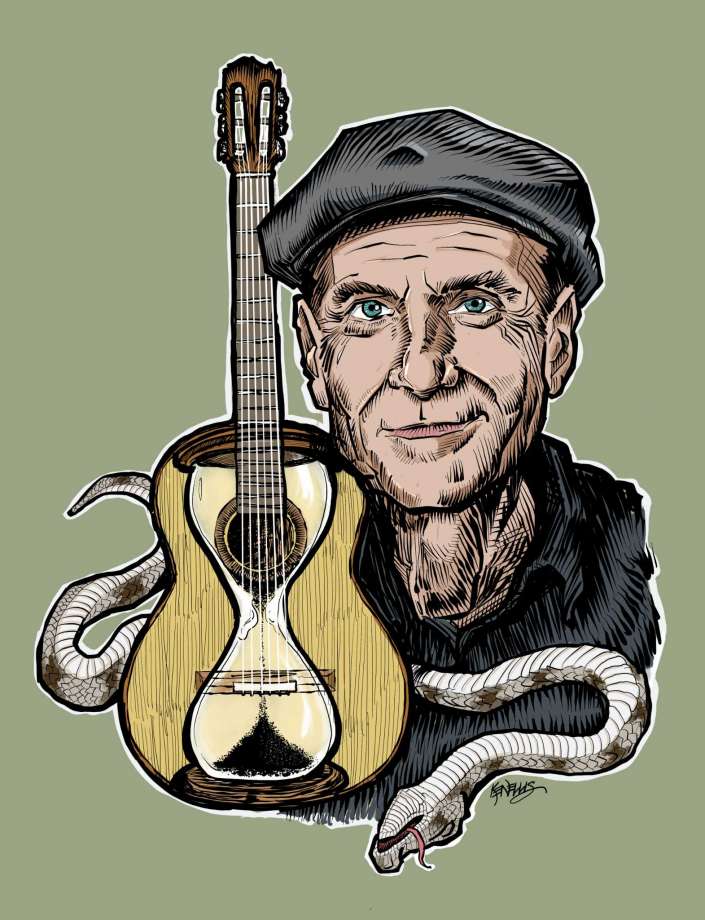
Today, when we talk, James Taylor is in Georgia, which treats his sweet voice well. He struggles more in the Southwest, where he has to take care to keep his vocal cords from getting too dry.
"When you're young, your health will forgive any abuses," Taylor says. "As time goes by, you learn not to play into nature's hands so much."
Those lines sound almost like the lyrics to a Taylor song. Time and nature come up time and again with him. Those themes - along with familial connections - have informed his music for 50 years now. And at 69, he's still reflective about what makes a song work.
He's been a more measured craftsman in the second half of his career. Taylor made 12 albums of original songs between 1968 and 1988. He's made just four since 1991. But to hear those four is to hear an artist who spends a lot of time making his craft sound effortless. He also sobered up in the mid-'80s, so Taylor has been more engaged with the world, too.
"You join the world when you come to terms with addiction, that's for sure," he says. "I found out I hadn't learned any skills or social cues or the habits you're supposed to pick up between 18 and 35. When you're addicted, you short-circuit all those life lessons. Playing catch-up is difficult and humiliating. But that's what I've done."
Taylor released "Before This World" in 2015 and will bring those songs along with his modern standards to the Toyota Center on Tuesday. Though it's easy to see albums merely as collections of 10 to 12 reflections from a writer issued every couple of years, Taylor's work holds together in an interesting way. His voice hasn't failed him in the decades since he sounded weary and wise as a 20-year-old kid on "James Taylor" in 1968, which lends an ageless quality to his songs about the passing of time.
Popular music criticism has its own shorthand, a series of genres and styles, canonized acts and others that are dismissed. Taylor has, over time, been codified as the prototyical confessional '70s singer-songwriter, a designation that merely reflects his ability to sell a song with a patient tempo through his voice and guitar.
Pictured with a guitar, the image of Taylor screams - or whispers, rather - "folkie." But that's not the whole story of who he was early on. His music flashes some of the blues that enchanted the '60s folk scene, but each album contains a couple of songs that suggest a writer enamored with the evolution of songwriting from Tin Pan Alley to Broadway to the Brill Building.
"My working definition of folk is a broad one," he says. "You're really the product of your environment rather than any other academic tradition."
For Taylor, that environment was New York in the mid-'60s. He was born in Boston, but his family moved to North Carolina when he was a child, where he picked up the cello, later trading it for a guitar.
Taylor's '60s experience is well documented: a failed attempt at college, a deep depression and a period in a psychiatric hospital.
"That gave me something sort of in a way, in that it canceled all expectations my parents might've had for me," he says. "I was free. Which was a terrifying thing but also wonderful. I was free and in the world. Luckily, it didn't kill me."
It came close, though. Upon his release, he headed to New York and found a fertile folk scene.
He picked up good creative habits and bad personal ones from just a few of his musical guideposts: Woody Guthrie, Bob Dylan, John Lee Hooker, Odetta, Joan Baez, Tom Rush, Eric Von Schmidt, the Kweskin Jug Band.
"I understand the scorn people have about it," he says. "And the humor, 'A Mighty Wind' and all that. But there was all this incredible stuff you could hear from Scotland, Ireland, the Caribbean. Amazing forms of music that were accessible in these folk clubs, that people were running as a labor of love. Nobody got rich doing that. And I benefitted from all of that."
And Broadway was also there. Just listen to "Mean Old Man," to cite just one song. Taylor calls Broadway "and the Brill Building the pinnacle of the most sophisticated music we have in this country."
Did you see yourself as creating some sort of hybrid of all this music?
To an extent, maybe. We're tempted to categorize things and give them labels and think in broad terms about culture. All this pop culture is where it's at. And I think we all go shopping in pop culture for our own personal myth. Each of us assembles a personal mythology that uses things, that borrows from pop culture. You do it whether you're writing songs or going to a job interview. Some guy thinks it's a good idea to channel Eddie Murphy or Sylvester Stallone. (Laughs.) That's an old example, I suppose. But still … you dance with your new bride at a wedding to a song that means a huge amount to both of you. You take a trip across the country with some college pals, and a few of the albums you take stay with you.
So we're not fake, exactly. But we're constructed in some way from what we consume?
I think these things accompany memories, and they stand for something. So we build these mythologies to express ourselves and to identify ourselves. Songs can be useful for that. Songs can be useful. I think that's the best thing you can say about a song is that it's useful.
If you go strictly by the statistics, Taylor's usefulness was greatest between 1970 and 1981. He put 14 songs in the Billboard Top 40, and these really formed the vessel he'd sail for years: "Fire and Rain," "Country Road" and interpretations of songs by others, including "You've Got a Friend" and "How Sweet It Is (To Be Loved by You)."
A high-profile music marriage ended in a high-profile divorce.
He got his life together and sobered up. The pace of his work slowed, but the results were often rewarding. Taylor speaks of the Japanese cultural practice of Living National Treasures, a designation for people who dedicated their entire lives to crafts or trades in traditions that spanned generations. He's quick to stipulate, "I'm not comparing myself to these artists by any measure. But I just admire that they've given themselves so fully to these art forms: bonsai or carving or what have you.
"I think the contribution of any one person is pretty incremental, but what a wonderful thing to do what you love and contribute in some small way to it and essentially form your life around it."
Taylor released "New Moon Shine" in 1991 at age 43. His reflections were precisely presented in song form: thoughts, anxieties and enjoyments. In song, he returns every so often to the subject of his father, a man in whom he sees similarities and differences. A father himself, Taylor sounds surprised at the support his father, a professor of medicine, offered when Taylor decided to go play in a band instead of going to college. But his father was also an alcoholic.
"I've always assumed he wasn't so red hot about the life he'd had," Taylor says. "Maybe that's why he encouraged me. He didn't want me to follow in his steps. He wanted something better. That's how I feel about my kids, even as terrifying as it is to see your kid on the road."
This measured and reflective Taylor doesn't turn out hits the way his younger self did. But the richness of his writing through his 40s, 50s and 60s has been rewarding. Each piece of a song appears meticulously placed.
So I wanted to ask you about "Copperline." You could've used any snake in that song, but you chose the hognose snake. There are issues of meter to consider. But it's also a weird snake in that it plays dead when threatened.
Yes, it plays possum, so to speak. I remember walking with my dog down by a stream below our house where there are typically a lot of snakes. And we came across this hognose snake. My dog Hercules was a snake killer. He survived a few bites and learned how to kill a snake. He let it strike, then he'd dart in, grab it by the middle section and shake it to pieces. He was always on the lookout for snakes. So we came across this hognose snake, and it was clearly dead. He sniffed and pawed at it. I pushed it with my toe. It was a dead snake. We continued on down to the creek a ways, but when we turned around and came back the snake was gone. So it fit that song. That idea of lying low and biding time. That's the metaphor there. I've never really spoken to anyone about that particular metaphor. Playing dead is a way of keeping your cards close for a moment.
Which brings up this duality I detect in your music. There are these elements that represent both the familial roots in the Northeast and also a rural quality from your youth in North Carolina.
I think you're right. I think that's true. I definitely identify as a North Carolinian, particularly when I'm away. When I was there, I guess I didn't feel any sense of it aside from being attached to the landscape. Identifying with the physical nature of the Piedmont area of North Carolina. The trees, the bugs, the snakes, the weather, the agriculture and the fields. But there's also this other feeling when I'm not there; it's largely due to my mother. She was a progressive Yankee transplanted to North Carolina because her husband worked there. Admittedly, we were in a relative oasis as far as North Carolina goes, being in a university town. But my mother wanted us to know there was life elsewhere. She communicated that to us. And it's interesting - as soon as I left, I identified as a native son.
I think we often connect more with a childhood home after we put some distance between us and it.
I know exactly what you mean. I knew I needed to get out, but there's always that Thomas Wolfe idea about home and longing for it. That's what "Copperline" is, longing for another time. Going back and remembering something from a different vantage point. What was I, 45 when I wrote that? When you go back and revisit things from childhood, everything suddenly looks smaller than you remember it. Things have developed and changed. And you think it's never for the better. That's a song about looking back and remembering.
Taylor was actually 43 when he released "Copperline" on "New Moon Shine." It's not a halfway point for his career, at least not yet, but that album and "Hourglass," released six years later, found him in a deeply reflective mood about the passage of time that has carried him to the present.
Just the title "Hourglass" is maddeningly evocative, a measure of time spent. Or time left. Depends on how you look at it. Depending on mood and the song, Taylor sees it both ways. But a line on one of his new songs, "You and I Again," jumps out for its simple and earnest plea: "I wish I could just slow the whole thing down."
"The longer you live, the faster the time seems to go by," he says. "The past 20 years to me just seems like yesterday."
He wrote the song with his wife, Kim, in mind.
"We found each other after I had … I won't call them 'failed' marriages because they were to wonderful people, and I'm deeply grateful to those people and those times. But I was maybe 48 when we met, and you find yourself wishing you had more time, that you'd met earlier. And you find yourself wishing you could go back and relive this wonderful thing. It's a song about possibility. We had this incredible sense that we'd known each other before. I don't have any belief system that emphasizes that idea, but I felt that way.
"And that's the nature of a song. One of the reasons you hoist these flags is to be recognized and to be larger than life and this hope, an impossible hope, but this hope for immortality. But the other is this idea of looking for a partner, looking for a home. Maybe it's a little bit of a sappy, sentimental song. But that's where I was when I wrote it."
Funny, then, that the theme echoes "Believe It or Not," which Taylor recorded more than 30 years ago.
"You're the one who brought up the hourglass," he says. "That's what you do on a ship: When the sand runs through the glass, you turn it back over. Over and over. Albums can be that way. They're about an hour long, then you start them over or move onto another one."
It didn't occur to me until after we'd stopped talking that the song Taylor brought up, "Believe It or Not," ends with the line, "While my friends around me were calling, 'today, today, today, today.' "
"Before This World," his latest collection of new songs, begins with the song "Today Today Today."
There's a touch of fatalism in the song's imagery: "The time has come to say goodbye."
But it's also a song of resilience. Of a guy who endured depression and addiction ("somehow I haven't died") and broken familial connections.
He's doing the same thing, just with more wisdom.
"The way ahead is clear," Taylor sings. "My heart is free from fear. I'll plant my flag right here.
"Today, today, today."
More Information
James Taylor
with Bonnie Raitt
When: 7:30 p.m. Tuesday
Where: Toyota Center, 1510 Polk
Tickets: $66-$100; 866-446-8849, houstontoyotacenter.com


 Accueil
Accueil


